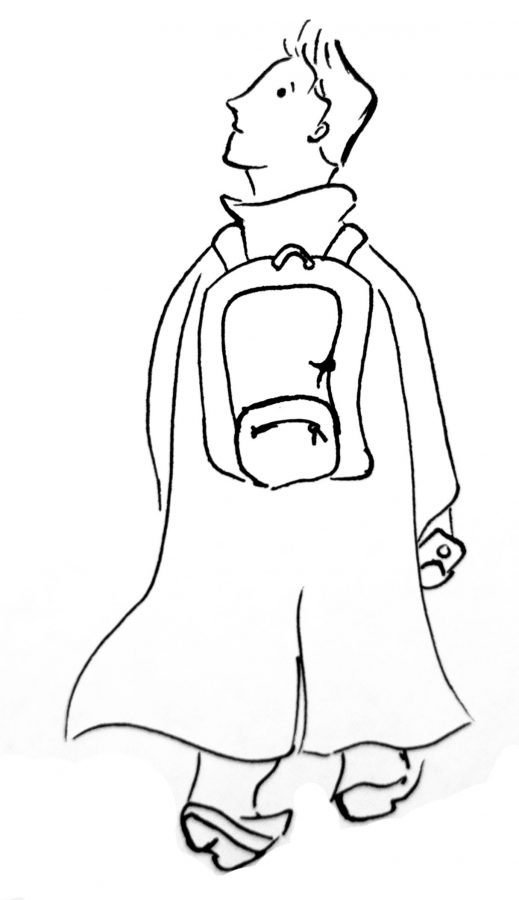From London to Dunkin, Homesickness Has Layers
Leave it to humans to diagnose people missing their homes with a sickness. God forbid someone live in a new place for the first time ever and take some time getting used to it. Nostalgia is out, everyone, and unfeeling ennui is very much in.
That may seem a bit strong. It’s not like homesickness is deeply stigmatized, and we all can have sympathy with the NYU freshman who misses his or her parents. But there is still an element of abnormality about it, and this makes missing home more complicated than it really should be. Because, like an onion or any self-respecting cake, homesickness has layers. If it were just the feeling of nostalgia, that would be one thing, but it is not. Bear with me.
One of the times I was most homesick, I was visiting my friend in Florence, Italy. It was a beautiful Saturday, and we had just climbed to the top of Il Duomo, eaten gelato and walked along the river. To finish the night, my friend brought me to her favorite pizza place. The pizza I had there was perhaps the best thing I had ever eaten in my life. Before that point, I never really understood why everyone was always going on about how great food is. It had always just been something I needed to consume to be alive. But as I ate, I could not help but look up and say to my friend, “You know what I want more than anything right now? Joe’s.”
The first layer of feeling here is the feeling of missing someplace else. Then, there’s the internal guilt that you’re not enjoying the present you’re living in. Finally, there’s the fact that whenever I complained about missing certain pizza or bodegas or Dunkin Donuts, people would respond with things like, “You’re in London,” “You’re traveling Europe almost every weekend,” or “People would kill to do what you’re doing.” Very understandable responses, but hearing that made me not only miss home, but also feel like I’m not appreciating the present and wasting time on some whiny nonsense.
I realized, however, that feeling bad about feeling bad is a bit too meta, anxiety-wise. Instead, I ignored people because everyone misses stuff, whether it be their family or the Old Spice Denali scent that they don’t sell in all of Europe apparently.
Peeling back those other two layers of homesickness meant making a different mental adjustment: looking for the bad in everything. Yes, I know that’s somewhat bleak. Yet, in a lot of ways homesickness is like a long-distance relationship. You use what you knew before as a crutch and idealize every aspect of it. You think that you actually enjoyed Glaze, conveniently ignoring the fact you only ate there because it was cheap, close to you and comes with a little salad that makes you feel better about your health choices. And so the end of homesickness is like the end of a long-distance relationship: it comes when you realize the past was actually not that great and the present has plenty to offer.
All of this is tied together neatly in the advice I give to anyone who is new to living in New York City. Basically, it’s not going to be as great as you imagined. The streets are literally filled with garbage. The disparity between expectation and reality is of course going to make you feel homesick sometimes, but don’t feel like the fact that you can go to the Empire State Building every day means your homesickness is stupid.
*You can read the rest of “Homesick at NYU” here.
A version of this article appeared in the Monday, Sept. 12 print edition. Email Thomas Devlin at [email protected].
Who is Thomas Devlin? Unfortunately, we may never know the full answer. Apocryphal information, however, can lead us to some reasonable guesses. Born in...


























































































































































